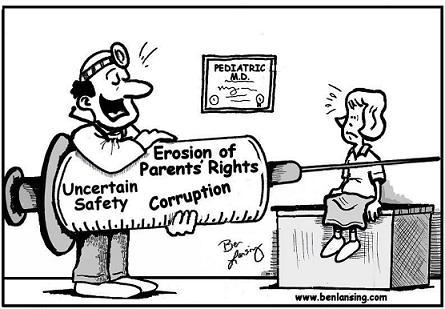
A new trial finds that the Gardasil vaccine protects men against human papillomavirus (HPV) as effectively as it does women. the question is: is widespread vaccination necessary?
Gardasil became available in 2006 and is now recommended by the Centers for Disease Control and Prevention (CDC) for all girls and young women between the ages of 9 and 26. it protects against four strains of HPV: 6 and 11, which cause 90% of genital warts cases, and 16 and 18, which cause 75% of all cervical cancers. Cervical cancer affects some 12,000 women per year.
However, vaccination rates remain low: according to a study presented in 2010 by researchers at the University of Maryland, only about one-third of teen girls and young women who start the three-dose series actually finish, and nearly three-quarters don’t start it at all. Part of the problem may be the drug’s cost, which approaches $400 for all three doses.
In 2009, Gardasil was approved for use among boys and men aged 9 to 26, but, lacking key data on the effectiveness of the vaccine in boys, official CDC guidelines don’t recommend routine vaccination in this group.
The new study, funded by Gardasil’s maker, Merck, involved 4,065 sexually active young men ages 16 to 26, from 18 countries, who were HPV-free at the time of trial. the participants were followed for two to three years. Overall, the study found that those in the Gardasil group was 65.5% less likely to develop genital warts caused by the four HPV strains that Gardasil inoculates against, compared with the placebo group. among study participants who completed the entire three-dose regimen, the vaccine was 90.4% effective at preventing genital warts (and 85.6% effective at preventing persistent HPV infection), compared with the placebo group — similar to its effectiveness in the female population.
Preventing persistent HPV infection and genital warts in men may also protect them from related cancers of the anus and penis. But given that rates of both genital warts and anal and penile cancers are so low in men, experts question whether the costs of vaccination are worth its benefits. Still, last week, the American Academy of Pediatrics included HPV vaccines for the first time in its list of recommended vaccines for children and teens. In December, Merck received permission from the FDA to market Gardasil as prevention for anal cancer.
Some advocates of routine HPV vaccination say that inoculating men contributes to herd immunity, and helps protect women. CNN reports:
“Men are such a vital component of the whole prevention cycle when looking at HPV or any sexually transmitted infection,” says Demetrius Porche, a professor of nursing research and evaluation at the Louisiana State University School of Public Health in new Orleans.
Vaccinating men provides a “double benefit” in that fewer men with HPV will also mean that fewer women are exposed, adds Porche, who was not involved in the current study but has researched HPV in men.
HPV is the most common sexually transmitted infection and affects 50% of sexually active adults over their lifetimes. the CDC estimates that 20 million Americans currently have a strain of HPV, with 6 million new cases each year. the virus has 40 different strains and is unusual in that its symptoms and outcomes can vary wildly; most people who have the virus have no symptoms and no lasting health problems. About 90% of HPV cases clear up on their own, though it can take up to two years for that to happen, which affords plenty of time to spread the disease.